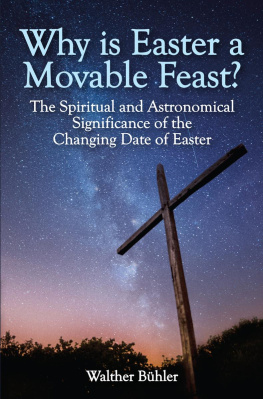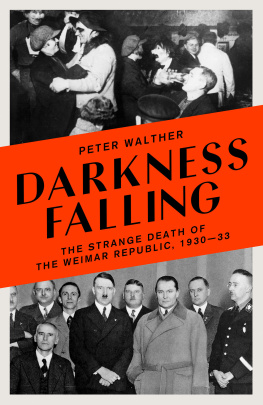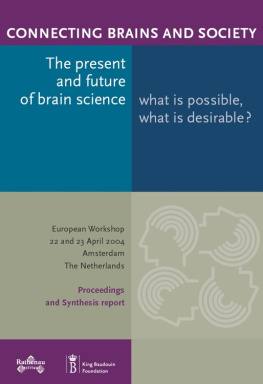PREFACE
Walther Rathenau , author of Die neue Gesellschaft and other studies of economic and social conditions in modern Germany, was born in 1867. His father, Emil Rathenau, was one of the most distinguished figures in the great era of German industrial development, and his son was brought up in the atmosphere of hard work, of enterprise, and of public affairs. After his school days at a Gymnasium, or classical school, he studied mathematics, physics and chemistry at the Universities of Berlin and of Strassburg, taking his degree at the age of twenty-two. Certain discoveries made by him in chemistry and electrolysis led to the establishment of independent manufacturing works, which he controlled with success, and eventually to his connexion with the world-famous A.E.G.Allgemeine Electrizittsgesellschaftat the head of which he now stands. During the war he scored a very remarkable and exceptional success as controller of the organization for the supply of raw materials. He is thus not merely a scholar and thinker, but one who has lived and more than held his own in the thick of commercial and industrial life, and who knows by actual experience the subject-matter with which he deals.
The present study, with its wide outlook and its resolute determination to see facts as they are, should have much value for all students of latter-day politics and economics in Europe; for though Rathenau is mainly concerned with conditions in his own land the same conditions affect all countries to a greater or less degree, and he deals with general principles of human psychology and of economic law which prevail everywhere in the world. It is not too much to say that "The New Society" constitutes a landmark in the history of economic and social thought, and contains matter for discussion, for sifting, for experiment and for propaganda which should occupy serious thinkers and reformers for many a day to come. His suggestions and conclusions may not be all accepted, or all acceptable, but few will deny that they constitute a distinct advance in the effort to bring serious and disinterested thought to the solution of our social problems, and in this conviction we offer the present complete and authorized translation to English readers.
I
Is there any sign or criterion by which we can tell that a human society has been completely socialized?
There is one and one only: it is when no one can have an income without working for it.
That is the sign of Socialism; but it is not the goal. In itself it is not decisive. If every one had enough to live on, it would not matter for what he received money or goods, or even whether he got them for nothing. And relics of the system of income which is not worked for will always remainfor instance, provision for old age.
The goal is not any kind of division of income or allotment of property. Nor is it equality, reduction of toil, or increase of the enjoyment of life. It is the abolition of the proletarian condition; abolition of the lifelong hereditary serfage, the nameless hereditary servitude, of one of the two peoples who are called by the same name; the annulment of the hereditary twofold stratification of society, the abolition of the scandalous enslavement of brother by brother, of that Western abuse which is the basis of our civilization as slavery was of the antique, and which vitiates all our deeds, all our creations, all our joys.
Nor is even this the final goalno economy, no society can talk of a final goalthe only full and final object of all endeavour upon earth is the development of the human soul. A final goal, however, points out the direction, though not the path, of politics.
The political object which I have described as the abolition of the proletarian condition may, as I have shown in Things that are to Come, be closely approached by a suitable policy in regard to property and education; above all, by a limitation of the right of inheritance. Of socialization in the strict sense there is, for this purpose, no need. Yet a far-reaching policy of socializationand I do not here refer to a mere mechanical nationalization of the means of production but to a radical economic and social resettlementis necessary and urgent, because it awakens and trains responsibilities, and because it withdraws from the sluggish hands of the governing classes the determination of time and of method, and places it in the hands that have a better title, those of the whole commonalty, which, at present, stands helpless through sheer democracy. For only in the hands of a political people does democracy mean the rule of the people; in those of an untrained and unpolitical people it becomes merely an affair of debating societies and philistine chatter at the inn ordinary. The symbol of German bourgeois democracy is the tavern; thence enlightenment is spread and there judgments are formed; it is the meeting place of political associations, the forum of their orators, the polling-booth for elections.
But the sign that this far-reaching socialization has been actually carried out is the cessation of all income without work. I say the sign, but not the sole postulate; for we must postulate a complete and genuine democratization of the State and public economy, and a system of education equally accessible to all: only then can we say that the monopoly of class and culture has been smashed. But the cessation of the workless income will show the downfall of the last of class-monopolies, that of the Plutocracy.
It is not very easy to imagine what society will be like when these objects have been realised, at least if we are thinking not of a brief period like the present Russian rgime, or a passing phase as in Hungary, but an enduring and stationary condition. A dictatorial oligarchy, like that of the Bolshevists, does not come into consideration here, and the well-meaning Utopias of social romances crumble to nothing. They rest, one and all, on the blissfully ignorant assumption of a state of popular well-being exaggerated tenfold beyond all possibility.
The knowledge of the sort of social condition towards which at present we Germans, and then Europe, and finally the other nations are tending in this vertical Migration of the Peoples, will not only decide for each of us his attitude towards the great social question, but our whole political position as well. It is quite in keeping with German traditions that in fixing our aims and forming our resolves we should be guided not by positive but by negative impulsesnot by the effort to get something but to get away from it. To this effort, which is really a flight, we give the positive name of Socialism, without troubling ourselves in the least how things will looknot in the sense of popular watchwords but in actual factwhen we have got what we are seeking.
This is not merely a case of lack of imagination; it is that we Germans have, properly speaking, no understanding of political tendencies. We are more or less educated in business, in science, in thought, but in politics we are about on the same level as the East Slavonic peasantry. At best we knowand even that not alwayswhat oppresses, vexes and tortures us; we know our grievances, and think we have conceived an aim when we simply turn them upside down. Such processes of thought as "the police are to blame, the war-conditions are to blame, the Prussians are to blame, the Jews are to blame, the English are to blame, the priests are to blame, the capitalists are to blame"all these we quite understand. Just as with the Slavs, if our good-nature and two centuries of the love of order did not forbid it, our primitive political instincts would find expression in a pogrom in the shape of a peasant-war, of a religious war, of witch-trials, or Jew-baiting. Our blatant patriotism bore the plainest signs of such a temper; half nationalism, half aggression against some bugbear or other; never a proud calm, an earnest self-dedication, a struggle for a political ideal.






![P.P.K.Walther [P.P.K.Walther] - Rhodesia’s Hangover](/uploads/posts/book/267900/thumbs/p-p-k-walther-p-p-k-walther-rhodesia-s.jpg)




